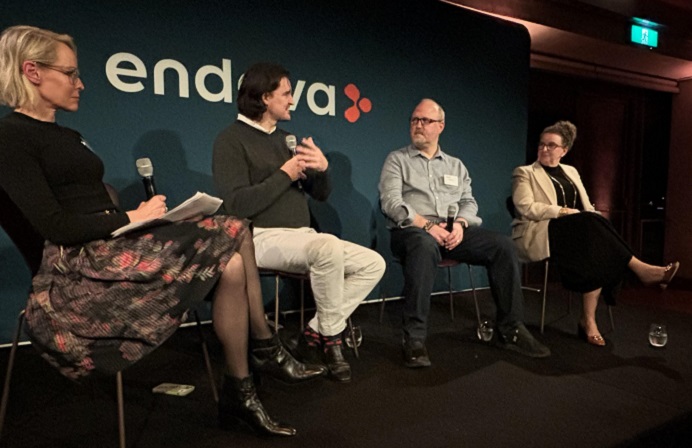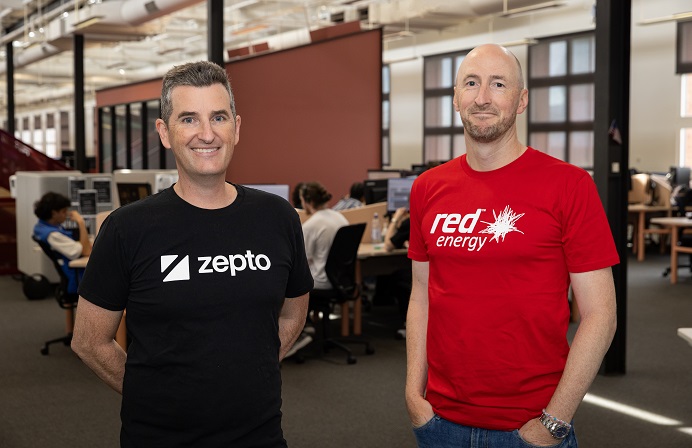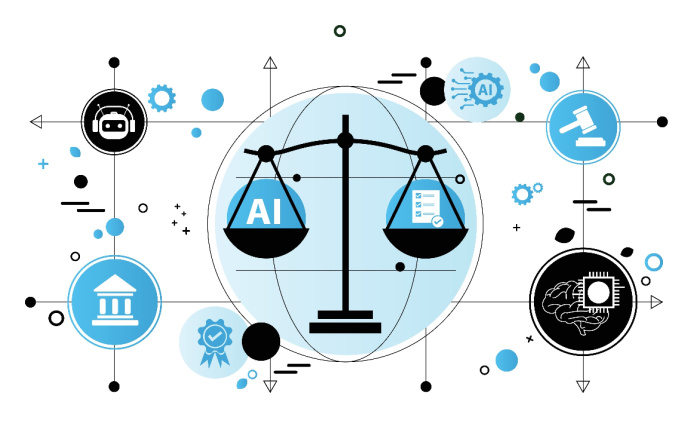
The banking sector is the “most ripe” of any industry for the successful adoption of generative artificial intelligence (GenAI) technologies, with at least three-quarters of the systems or digital products used within banks lending themselves to GenAI disruption, according to NGM Group information chief Libby Davey.
“There are so many applications and no shortage of use cases for this technology in banking… whether that’s in engineering, credit or risk processes, or just the ability to run complex datasets really quickly, and at scale, to support data-led decisioning,” Davey said, as part of an industry panel hosted by corporate tech developer and consultancy firm Endava on Wednesday evening.
Davey said she was particularly excited about the technology’s potential to transform the employee experience.
“Getting GenAI into the hands of employees I think will be the next really big thing for banking.
“I know OCBC Bank and other global banks are providing [GenAI] technologies for their employees to generate documents, to collaborate, to do their research… or perform code regeneration.”
However, she called for early adoptees to make efforts to allay employees’ justified concerns about the technology and its incursion into their workspace.
“It comes back to the human centricity piece, making sure that people who we want to adopt it are not fearful and trust they are supported to be able to take advantage of it,” Davey said.
Davey warned of emerging technology luddites potentially derailing GenAI rollouts (“out there to ensure that everything fails just so they don’t get disrupted”) urging adopting organisations to take a more considered approach to the technology – one that does not diminish human workforces but that they know is there to augment their efforts.
This more considered approach can also forestall situations where excitement around and rapid adoption of a technology overshadows its practical drawbacks.
She cited banks’ ready deployment of voice recognition technologies in recent years, which are now being easily duped by GenAI voice-mimicking technologies.
“’Voice is your ID’ was going to be the revolution in security. Banks adopted it with fervour – we all did. It seemed like a real step forward. But we’ve realised now it doesn’t take much [to capture] a soundbite and for [a hacker] to replicate any voice really well and very quickly.
“We thought that we had the technology that had given us the advantage to keep our customers protected and secure and, lo and behold, here comes along an advancement that has essentially undone that.
“And now we’re thinking, ‘Maybe we need to step back… to multi-factor authentication. Maybe we leapt into voice recognition too quickly’.”
Davey warned that technologists, particularly CTOs, are the most ardent first adopters of emerging technology, often finding that they have to walk back on a hasty deployment.
“We’re the worst at this – we just adopt, push it out, and think it’s going to solve a business problem.
“We sell it to stakeholders as such… but then we’ll have to come back a little while later and go ‘You know that thing we said was going to revolutionise [the business]? Well, now we think we need to do something else.”
She urged for banks to “go discreetly and go carefully” and seek guidance from experts first.
“Test, test and don’t be in such a hurry to adopt. Think about it going forward.
“That’s where the human-centred piece comes in. Get the wisdom of the crowds. Get some of the black/white hats and others in the space to tell you why it won’t work and why it could go wrong.”
She said NGM Group, made up of the recently merged Newcastle Permanent and Greater Bank brands, like others in the space is currently testing the use of Microsoft Copilot for its employees.
“Our engineers are really excited by it. We’ve put in some safe sandpits for that for some innovation, and using it in operations and areas that you’d expect us to be using it.”
She noted that challenger and smaller mutual banks that “spend members’ money” must take a more conservative approach to tech adoption.
“We’re a mutual, without the scale and resources of the big four banks, so for us using GenAI has to be a very specific use case, one that we’re really confident is going to drive an outcome for us.”
She said NGM is currently building out an AI strategy, urging other organisations to have their AI foundations and frameworks in place to ensure adoption is well considered and that risks accounted for.
AI, she said, is the topic du jour for corporate boards at the moment, as the risks of these technologies in corporate environments become more acute.
“I went from talking to boards about cloud and data to now, where all I talk about is AI, GenAI and cyber.
“We’re very, very excited by [GenAI] and will use it where it makes sense.”





